第12章 III(1)
American Salmon The race is neither to the swift nor the battle to the strong;but time and chance cometh to all.
I HAVE lived!
The American Continent may now sink under the sea,for I have taken the best that it yields,and the best was neither dollars,love,nor real estate.
Hear now,gentlemen of the Punjab Fishing Club,who whip the reaches of the Tavi,and you who painfully import trout over to Octamund,and I will tell you how old man California and I went fishing,and you shall envy.
We returned from The Dalles to Portland by the way we had come,the steamer stopping en route to pick up a night's catch of one of the salmon wheels on the river,and to deliver it at a cannery down-stream.
When the proprietor of the wheel announced that his take was two thousand two hundred and thirty pounds weight of fish,"and not a heavy catch neither,"I thought he lied.But he sent the boxes aboard,and I counted the salmon by the hundred--huge fifty-pounders hardly dead,scores of twenty and thirty pounders,and a host of smaller fish.They were all Chenook salmon,as distinguished from the "steel head"and the "silver side."That is to say,they were royal salmon,and California and I dropped a tear over them,as monarchs who deserved a better fate;but the lust of slaughter entered into our souls,and we talked fish and forgot the mountain scenery that had so moved us a day before.
The steamer halted at a rude wooden warehouse built on piles in a lonely reach of the river,and sent in the fish.I followed them up a scale-strewn,fishy incline that led to the cannery.The crazy building was quivering with the machinery on its floors,and a glittering bank of tin scraps twenty feet high showed where the waste was thrown after the cans had been punched.
Only Chinamen were employed on the work,and they looked like blood-besmeared yellow devils as they crossed the rifts of sunlight that lay upon the floor.When our consignment arrived,the rough wooden boxes broke of themselves as they were dumped down under a jet of water,and the salmon burst out in a stream of quicksilver.A Chinaman jerked up a twenty-pounder,beheaded and detailed it with two swift strokes of a knife,flicked out its internal arrangements with a third,and case it into a blood-dyed tank.The headless fish leaped from under his hands as though they were facing a rapid.Other Chinamen pulled them from the vat and thrust them under a thing like a chaff-cutter,which,descending,hewed them into unseemly red gobbets fit for the can.
More Chinamen,with yellow,crooked fingers,jammed the stuff into the cans,which slid down some marvellous machine forthwith,soldering their own tops as they passed.Each can was hastily tested for flaws,and then sunk with a hundred companions into a vat of boiling water,there to be half cooked for a few minutes.
The cans bulged slightly after the operation,and were therefore slidden along by the trolleyful to men with needles and soldering-irons who vented them and soldered the aperture.
Except for the label,the "Finest Columbia Salmon"was ready for the market.I was impressed not so much with the speed of the manufacture as the character of the factory.Inside,on a floor ninety by forty,the most civilized and murderous of machinery.
Outside,three footsteps,the thick-growing pines and the immense solitude of the hills.Our steamer only stayed twenty minutes at that place,but I counted two hundred and forty finished cans made from the catch of the previous night ere I left the slippery,blood-stained,scale-spangled,oily floors and the offal-smeared Chinamen.
We reached Portland,California and I crying for salmon,and a real-estate man,to whom we had been intrusted by an insurance man,met us in the street,saying that fifteen miles away,across country,we should come upon a place called Clackamas,where we might per-chance find what we desired.And California,his coat-tails flying in the wind,ran to a livery-stable and chartered a wagon and team forthwith.I could push the wagon about with one hand,so light was its structure.The team was purely American--that is to say,almost human in its intelligence and docility.Some one said that the roads were not good on the way to Clackamas,and warned us against smashing the springs.
"Portland,"who had watched the preparations,finally reckoned "He'd come along,too;"and under heavenly skies we three companions of a day set forth,California carefully lashing our rods into the carriage,and the by-standers overwhelming us with directions as to the saw-mills we were to pass,the ferries we were to cross,and the sign-posts we were to seek signs from.
Half a mile from this city of fifty thousand souls we struck (and this must be taken literally)a plank road that would have been a disgrace to an Irish village.
Then six miles of macadamized road showed us that the team could move.A railway ran between us and the banks of the Willamette,and another above us through the mountains.All the land was dotted with small townships,and the roads were full of farmers in their town wagons,bunches of tow-haired,boggle-eyed urchins sitting in the hay behind.The men generally looked like loafers,but their women were all well dressed.
Brown braiding on a tailor-made jacket does not,however,consort with hay-wagons.Then we struck into the woods along what California called a camina reale--a good road--and Portland a "fair track."It wound in and out among fire-blackened stumps under pine-trees,along the corners of log fences,through hollows,which must be hopeless marsh in the winter,and up absurd gradients.But nowhere throughout its length did I see any evidence of road-making.There was a track--you couldn't well get off it,and it was all you could do to stay on it.The dust lay a foot thick in the blind ruts,and under the dust we found bits of planking and bundles of brushwood that sent the wagon bounding into the air.The journey in itself was a delight.